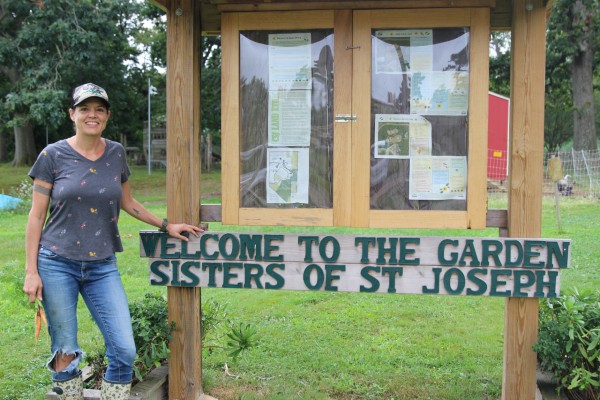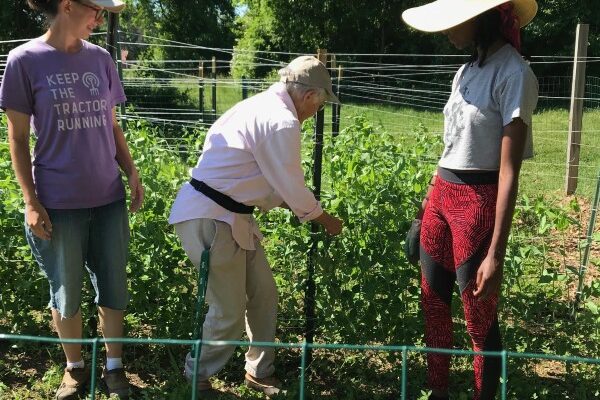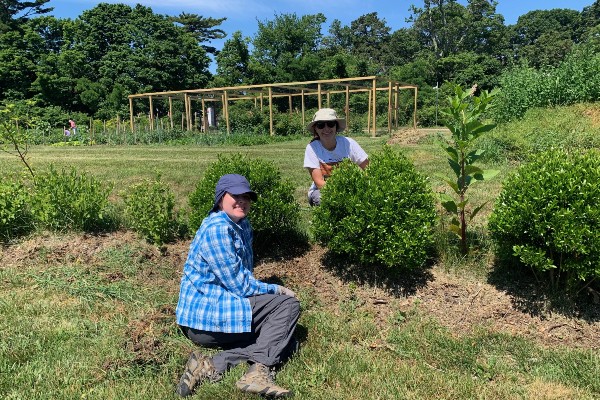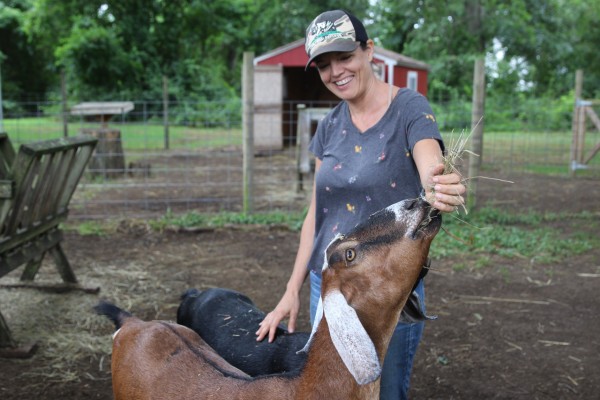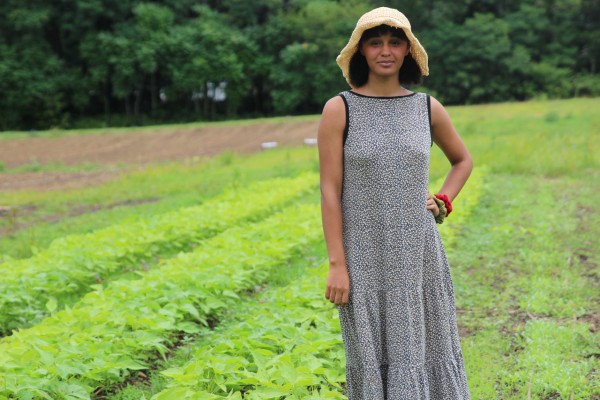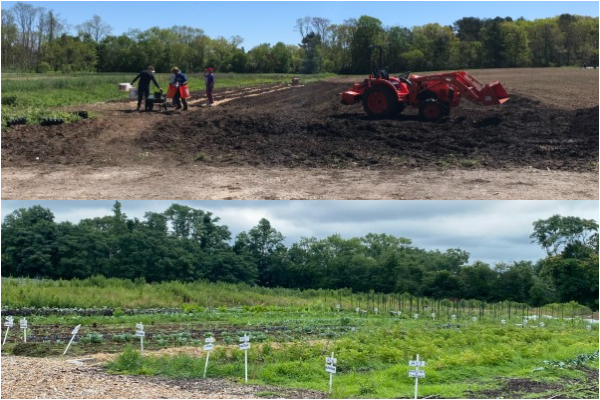BRENTWOOD, N.Y. — Muddy boots, sap-speckled shirts, and wide-brimmed hats were the unofficial, everyday uniform for the young people who spent their summer focusing on ecology work at the Sisters of St. Joseph’s Brentwood campus.
They toiled in three separate categories: land ecology, garden ministry, and farming.
A staggered group of seven ecology interns and Worldwide Opportunities on Organic Farms (WWOOF) volunteers lived on the 212-acre Brentwood property between the end of May and the beginning of August — pursuing their passions and making the Earth a greener place, one row of plants at a time.
It was not the first time, however, the religious order had focused its attention on environmental programming. Among numerous previous initiatives, the sisters affirmed their land ethic statement in 2015, added five acres of solar panels in 2018 — becoming the largest privately-owned solar array on Long Island — and have leased 28 acres of land to local organic farmers and gardeners since 2016.
“It’s important to let people know who we are today as sisters, the things we’re doing, especially in our relationship with the earth, universe, and lands that we hold in sacred trust,” said Sister Karen Burke, CSJ, coordinator of land initiatives with the Sisters of St. Joseph.
“The summertime opportunities offer the opportunity for people to experience community, while at the same time, be in relation with Earth and the ecosystems around us.”
The sisters began inviting people to work with them and their programs two summers ago. This summer proved to be critical in bringing the community back together again during the pandemic and working towards a more sustainable future.
“One thing I love about my job is I get to experiment,” said on-campus landscape ecologist Amanda Furcall, who oversaw four interns this summer. “And I have all these wonderful people — who are just out of school or in the middle of school and are kind of steeped in all this knowledge — who can provide other perspectives and ideas of what restoration ecology is and can be.”
Christina Carroll was one of the interns who worked directly with Furcall from June 14 to August 6. She majored in environmental engineering in college and worked in that field for several years before deciding to pursue a master’s in ecology.
“I just went back to grad school [at the University of North Carolina at Chapel Hill] in the spring and was looking for a hands-on summer internship where I could see what an ecologist does in the real world,” Carroll explained. “This campus is exactly what I was looking for.”
Carroll and her colleagues, who focused on restoration ecology, removed invasive plants that were harming and killing trees, planted native tree species like white pines, and surveyed the regenerating, 100-year-old forest that stands on the sisters’ property. They discovered that little cherry, Holly, and oak trees were sprouting nearby due to natural seed dispersal.
By early August, WWOOFer Gabrielle Pelicci was already halfway done with her time in the sisters’ garden ministry program. She arrived in Long Island after doing 18 months of work related to farming and permaculture and natural sustainable building in Puerto Rico, Southern California, Florida, and New Mexico.
“I came to this farm specifically because of the mission and because I’m really passionate about caring for the land and caring for people,” Pelicci said. “The values, the land ethics statement and the values of the sisters were most interesting to me.”
Next month, Pelicci will continue her adventure in the U.S. Virgin Islands and plans to look into buying her own land that could be used to help people better connect with nature.
On the other side of campus, WWOOFer Josephina Starr stepped off rowed-off farmland, taking a swig of water after harvesting 105 pounds of lettuce with two other volunteers from the Island Harvest Food Bank. She wanted more hands-on experience in seeing how an organic farm is built from the ground up.
“Organic farming is really important for the future of the economy,” Starr said on August 6, her second-to-last day on the property. “It’s super important to have the knowledge of how to have an organic farm because it’s being seen as one of the most important potential ways to feed America for the future.”
“I feel this farm in particular has an underlying acknowledgement of spirituality,” she continued. “And the fact that the nuns own this land and how they acknowledge the importance of climate change and green methods of energy, I think, is a good example for people.”
Though summer is quickly coming to a close, the next major project on the sisters’ radar is constructing a waste treatment wetland site with native plants.
“We’re putting in two waste treatment systems in order to clean wastewater before it goes back into the aquifers,” said Sister Karen, explaining that they hope to complete the project in the fall.
“There’s lots of other things besides farming and land ecology that are all about sustainable living.”

